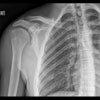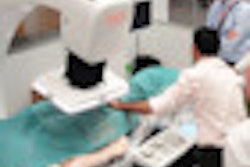
NEW YORK (Reuters Health), Mar 24 - Surgeons and radiologists in Germany report that early use of whole-body CT in patients with major blunt trauma significantly increases their odds of survival.
While whole-body CT is technically feasible, safe, and faster than other imaging modalities, its benefit on mortality in patients with major trauma has yet to be established, Dr. Stefan Huber-Wagner at Munich University Hospital and his associates note in the Lancet, published online on March 24.
For their retrospective study, the research team used the German Trauma Society registry to identify 4,621 polytrauma patients admitted directly to emergency departments between 2002 and 2004, 32% of whom had whole-body CT scans. The decision to use whole-body CT depended on availability and emergency-department protocols.
The authors estimate that the odds of survival can be increased by about a third by performing whole-body CT (p = or < 0.002). The estimated numbers needed to scan to prevent one death ranged from 17 to 32.
"The earlier the emergency team knows the definitive pattern of injury, the sooner a prioritized therapeutic plan can be developed and realized for the benefit of the patient," they write.
Regarding the radiation exposure, Huber-Wagner and colleagues add, "Even if increased risk of developing cancer years or decades later cannot be neglected, a swift, accurate, and comprehensive diagnosis is mandatory in critically injured patients."
This research "is an important contribution to the care of patients with multiple trauma," indicating statistically and clinically significant reductions in mortality with whole-body CT, Dr. Timothy Fabian, a surgeon from the University of Tennessee Health Science Center in Memphis, writes in a related commentary.
Lancet 2009.
Last Updated: 2009-03-23 18:30:15 -0400 (Reuters Health)
Related Reading
Incidental findings common after cervical spine CT for trauma evaluation, March 17, 2009
Copyright © 2009 Reuters Limited. All rights reserved. Republication or redistribution of Reuters content, including by framing or similar means, is expressly prohibited without the prior written consent of Reuters. Reuters shall not be liable for any errors or delays in the content, or for any actions taken in reliance thereon. Reuters and the Reuters sphere logo are registered trademarks and trademarks of the Reuters group of companies around the world.


















